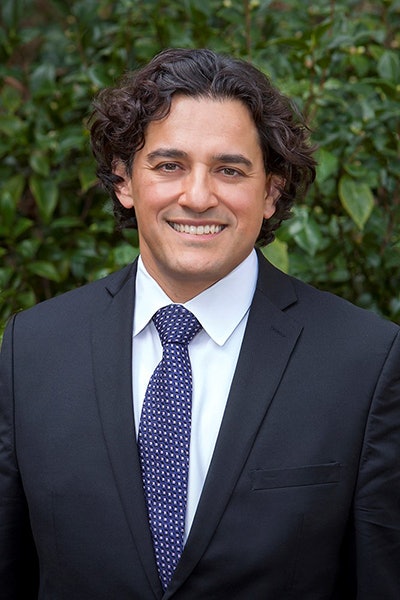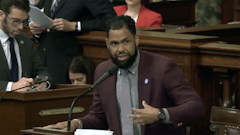
A regulated cannabis industry launches in California Jan. 1, and the state’s gray market businesses need to become licensed by local and state permits. Adaptability, agility and authenticity will determine who succeeds in 2018, according to Omar Figueroa, senior partner at the Law Offices of Omar Figueroa, which provides legal counsel and representation to members of California’s cannabis industry.
Immunity
“The collective- and cooperative-limited immunity from state criminal prosecution is due to expire in about a year, but being a member of a collective or a cooperative is not a defense to violations of local land use and other ordinances,” Figueroa said.

“Premium product from Mendocino County may fetch only $700 per pound wholesale these days, whereas in the height of the Drug War, the wholesale price was $4,800 per pound,” he noted.
Cannabis businesses licensed by the state will be in good standing with regulators, barring a crackdown by Attorney General Jeff Sessions and the Department of Justice, Figueroa said, and owners should feel a sense of stability from their compliance with state law.
“ … Companies will have a coming-of-age moment upon realizing that every minute aspect of their operations is now limited and regulated to a frustrating, exhausting and sometimes illogical degree.” – Omar Figueroa
“Although obtaining a state license is the main focus right now, Jan. 1 also comes with packaging rules, advertising restrictions and limitations on promotions, including sales,” Figueroa said. “Add to this otherwise-standard rules that cannabis companies were previously letting slip, such as employment laws and intellectual property compliance, and companies will have a coming-of-age moment upon realizing that every minute aspect of their operations is now limited and regulated to a frustrating, exhausting and sometimes illogical degree.”
Regulators will experience this same sense of discovery, Figueroa said, as they are in a position of continuing to set rules as the industry grows.
Culture Shift
California is the fifth largest economy in the world and home to more than 12 percent of Americans, Clark Neubert LLP’s Nicole Howell Neubert and Ariel Clark noted in a joint statement. Clark is a cannabis business attorney and principal of the women-owned law firm, and founded and serves as Chairwoman of the Los Angeles Cannabis Task Force. Howell Neubert, also a cannabis business attorney and principal of Clark Neubert LLP, has been actively engaged in the regulatory implementation of California’s medical and adult-use licensing statutes, serving as Policy Committee leadership for California Growers Association, on the board of California NORML and as one of 16 members invited to serve on State Treasurer John Chiang’s Cannabis Banking Working Group.
Jan. 1 has the potential to be a tipping point for cultural changes that could positively influence criminal justice, environmental protection, technology, healthcare and more, Howell Neubert and Clark said.

For operators of cannabis businesses, the market will change in two important ways, said Howell Neubert and Clark. The first will affect who operators can do business with. State licensed business will only be permitted to do business with other state licensees, which will create a gap and a dwindling market for operators who cannot get licensed due to the lack of a local regulatory process. Many of California’s cities and counties, they stated, have either banned cannabis operations or have no permitting process.
As the regulated market unfolds, it will be trial by error, Figueroa added.
“Cannabis businesses used to handshake deals and a laissez-faire economic system will find new regulations at what feels like every corner,” he said.
Taxation
The second major change, Howell Neubert and Clark said, is taxes. As of Jan. 1, the cultivation tax (a fixed rate per ounce) and the cannabis excise tax (15 percent added to every retail sale) will be leveraged.
“These, plus high local taxes, income taxes, [section] 280E [of the IRS tax code] and the list goes on, make the price tag to operators for all this compliance and social progress pretty hefty,” Howell Neubert and Clark stated.
But at the same time, Howell Neubert and Clark noted, some things will not change for California’s cannabis businesses.
“The unnecessary impediments to operating a cannabis business, the high cost of compliance and the overwhelming challenges of unjust federal tax policy and lack of banking access are going nowhere anytime soon,” they said. “So, as always, it continues to be a very bumpy road. But this industry has never been for the faint-hearted, and that will (hopefully) never change.”
Editor’s Note: Omar Figueroa, Nicole Howell Neubert and Ariel Clark will be speaking at the Cannabis 2018 Cultivation Conference on “The Golden State Rules: A Q&A With Leading Cannabis Lawyers and Experts.” In a workshop-type setting, they will share insights on the ever-changing state and regional regulatory cannabis landscape and what businesses need to know to prepare for succeeding in the largest cannabis market in the country. For more information, visit www.cannabiscultivationconference.com.
Top image: © Americanspirit | Dreamstime.com; Headshots courtesy of respective subjects


























